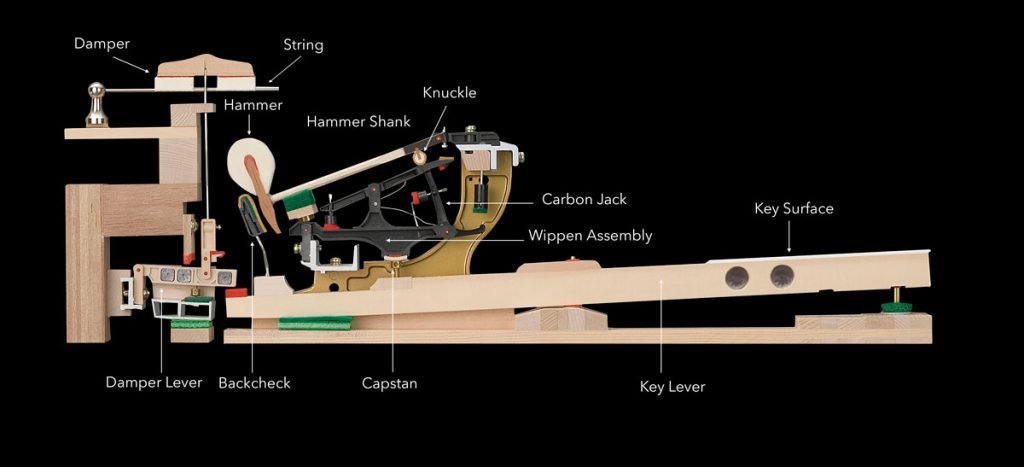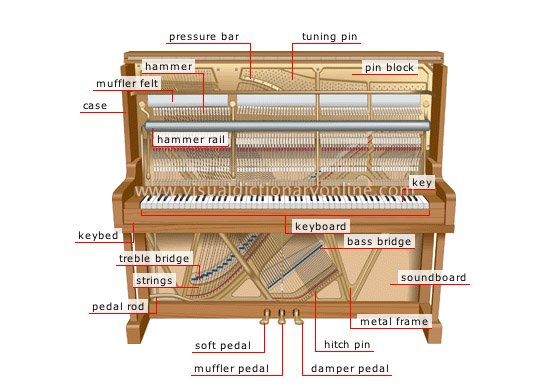Caring for Piano Keys and Pedals: A Complete Guide
Owning a piano—whether it’s an upright piano, grand piano, baby grand piano, or a digital piano keyboard—is an investment in art, culture, and music. The elegance and functionality of a piano are unparalleled, but to ensure its beauty and sound quality last for decades, proper care for its keys and pedals is essential. In this comprehensive guide, we’ll delve into the best practices for maintaining piano keys and pedals to keep your instrument in pristine condition. By the end of this article, you’ll not only know how to care for your piano but also feel a renewed sense of pride in your investment.

Understanding Your Piano: Keys and Pedals
Before diving into maintenance tips, it’s crucial to understand the components you’ll be caring for. Each part of your piano plays a vital role in producing the rich, resonant sound that makes this instrument so beloved.
Piano Keys
Piano keys can be made from different materials, each requiring specific care techniques:
- Ivory: Older pianos, especially vintage upright pianos and grand pianos, often feature ivory keys. Ivory is porous and prone to discoloration over time, requiring delicate handling.
- Plastic: Modern digital piano keyboards and many baby grand pianos use durable plastic keys. These are easier to maintain and resistant to discoloration but can still accumulate grime if not cleaned regularly.
- Wooden Keys: High-end grand pianos may still have wooden keys underneath a plastic or synthetic ivory covering. These provide enhanced touch sensitivity but demand careful cleaning to avoid warping.


Piano Pedals
Most pianos, regardless of type, feature three pedals. Understanding their function can help you appreciate their maintenance needs:
- Sustain Pedal (Right Pedal): This pedal sustains the sound of the notes played, creating a lingering effect that adds depth to your music.
- Soft Pedal (Left Pedal): The soft pedal reduces the volume of the notes played, enabling more nuanced and delicate performances.
- Sostenuto Pedal (Middle Pedal): This pedal selectively sustains specific notes, making it particularly useful in advanced compositions.
Each type of piano—whether a baby grand piano, upright piano, or digital piano keyboard—has unique pedal configurations and mechanisms. Ensuring their smooth operation is key to maintaining your piano’s functionality.

Cleaning and Maintaining Piano Keys
Regular cleaning of piano keys ensures they remain responsive and visually appealing. Here’s how you can clean the keys on your grand piano, upright piano, or digital piano keyboard effectively:
Step 1: Dust Regularly
- Use a soft, lint-free cloth to dust the keys weekly. This prevents the accumulation of grime that can dull their appearance and affect their performance.
- For digital piano keyboards, you can use an air blower to remove dust from tight spaces, ensuring the internal components remain dust-free as well.
Step 2: Clean with Care
- Ivory Keys: Mix a small amount of gentle soap with lukewarm water. Dampen a cloth and wipe each key individually, moving vertically to avoid moisture seeping between keys. This method helps preserve the texture and color of ivory.
- Plastic Keys: Use a mixture of white vinegar and water for a gentle yet effective clean. This solution is particularly effective in removing fingerprints and light stains.
- Wooden Keys: Avoid water and instead use specialized wooden surface cleaners to protect the natural fibers and prevent warping.
Step 3: Remove Stains
- For ivory keys, use a white eraser to remove minor stains. This method is gentle and won’t damage the surface.
- For plastic keys, a small amount of rubbing alcohol can be applied with a cotton swab to tackle tougher stains. Be cautious not to overuse alcohol, as it can dry out the material.
Step 4: Polishing Keys
Invest in a high-quality piano key polisher suitable for your grand piano or upright piano. Polishing not only enhances the appearance of the keys but also adds a protective layer that makes future cleaning easier.
Common Mistakes to Avoid
- Never use harsh chemicals like bleach, as they can permanently damage the keys.
- Avoid spraying liquid directly onto the keys, which increases the risk of moisture seeping into the mechanism.
- Don’t play with dirty or oily hands, as this can quickly soil the keys and make cleaning more challenging.
Caring for Piano Pedals
Piano pedals are as vital to the instrument’s performance as the keys. Whether your instrument is a baby grand piano or a digital piano keyboard, follow these steps to maintain its pedals:
Step 1: Keep Pedals Dust-Free
- Wipe pedals with a dry cloth regularly to prevent dust and dirt buildup. This simple step ensures the pedals remain responsive and visually appealing.
Step 2: Clean Pedals Properly
- Use a mild metal polish for brass pedals found on most grand pianos and upright pianos. Ensure the polish doesn’t touch the surrounding wood to avoid damage.
- For digital piano keyboards, plastic pedals can be cleaned with a damp cloth. This prevents discoloration and keeps them functioning smoothly.
Step 3: Lubricate Mechanisms
- If pedals on your upright piano or baby grand piano squeak, apply a small amount of lubricant to the joints. Always consult a professional technician if unsure about the type of lubricant to use.
Step 4: Inspect for Wear and Tear
- Regularly check pedal rods and connections for signs of wear. Replace any worn-out parts promptly to avoid further damage.
- For grand pianos, ensure the pedals are properly aligned and don’t feel wobbly, as this can affect performance.
Environmental Factors That Impact Piano Keys and Pedals
Environmental conditions can significantly impact the longevity and performance of your piano. Here’s how to mitigate these effects:
Humidity and Temperature Control
- Keep your piano in a room with stable temperature and humidity levels. The ideal humidity for pianos is around 42-50%.
- Use a dehumidifier or humidifier as necessary, especially for upright pianos and baby grand pianos in climates with extreme seasonal variations.
- For digital piano keyboards, maintaining a stable environment helps preserve the electronics and prevents condensation-related issues.
Placement and Lighting
- Avoid placing your grand piano or digital piano keyboard in direct sunlight, as this can discolor keys and warp wooden components.
- Keep the piano away from heat sources like radiators or fireplaces, which can dry out the wood and cause cracks or warping.
Advanced Care Tips
Professional Servicing
- Schedule annual maintenance with a professional technician for your upright piano, grand piano, or baby grand piano. They can perform deep cleaning, realignment, and tuning to ensure your piano performs at its best.
- For digital piano keyboards, have a professional inspect the internal components periodically to prevent malfunctions.
Protective Accessories
- Invest in a piano cover to protect your grand piano or digital piano keyboard from dust, accidental spills, and environmental damage.
- Use a key cover to shield the keys from dirt and grime when not in use, ensuring they remain clean and ready to play.
DIY Maintenance Kits
- Purchase maintenance kits specifically designed for upright pianos or digital piano keyboards. These kits typically include microfiber cloths, key polish, and pedal cleaning solutions tailored for your instrument’s needs.
Why Proper Care Matters
Maintaining your piano—be it an upright piano, grand piano, baby grand piano, or digital piano keyboard—ensures:
- Longevity: Proper care protects your investment by preventing damage and wear.
- Optimal Sound Quality: Clean keys and functional pedals deliver superior acoustics, enhancing your playing experience.
- Aesthetic Appeal: A well-maintained piano remains a stunning centerpiece in any room, showcasing your dedication to the art of music.

Conclusion
Caring for piano keys and pedals is an essential aspect of piano ownership. By following these detailed guidelines, you can ensure your grand piano, upright piano, baby grand piano, or digital piano keyboard remains in excellent condition for years to come. Every note you play will reflect the time and effort you invest in maintaining your instrument.
Whether you’re a novice pianist or a seasoned musician, treating your piano with care not only preserves its value but also enhances your playing experience. Start today and keep your piano’s keys and pedals as flawless as the day you brought it home. The joy of playing on a well-maintained piano is unmatched, and your efforts will ensure that this cherished instrument continues to bring music and happiness into your life.
For further reading : Piano
For more articles : https://pianopassion.org/












Leave a Reply